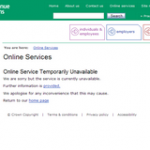 We’re exceptionally proud to unveil the latest Puffbox site: a new corporate website – or indeed, two – for the Wales Office. And as you’d probably expect from us, it’s not just another government website.
We’re exceptionally proud to unveil the latest Puffbox site: a new corporate website – or indeed, two – for the Wales Office. And as you’d probably expect from us, it’s not just another government website.
In late 2007, I was invited over to the Wales Office’s Whitehall HQ. I hope they don’t mind me saying, their website was probably the ugliest in government, and people were starting to take notice. They had no hands-on control of their own content, and no site usage data. Could Puffbox help? Yes, yes we could.
The new site, which we’re launching today, was designed, built and populated in a timescale (and for a budget) which would put many suppliers to shame, and gives them functionality which many of their Whitehall neighbours will envy. I also believe it could spark a culture change in how government communicates.
Regular readers won’t be surprised to hear it’s built on the WordPress ‘blogging’ platform, and continues our series of ‘blogs which aren’t blogs’. News releases, speeches, publications and FOI disclosures are all entered as ‘blog posts’, distinguished using categories. All the more static, corporate stuff is done as ‘pages’.
For the readers, there are immediate benefits. Obviously, it’s prettier. It’s been coded with better accessibility in mind. Every page is automatically printer-friendly, using CSS. The blogging mechanism gives reliable, automated archiving by category and month. Not to mention the various RSS feeds. And as you’re legally entitled to expect, there’s a fully-functional Welsh-language version too.
And for the Wales Office themselves, it’s a quantum leap. Previously they’ve been emailing pages out for someone to hand-code: yes folks, even in 2008. (Not the only ones, either.) They now have direct access into their publishing back-end, with all the benefits thereof. And because it’s WordPress, page authoring and management is a breeze. That’s before we get on to things like Google rankings, site usage statistics, multi-site and mobile working…
Why do I see it as a culture-changer? The site is being run by the Press Office, a small team in a small department (60 staff). They have the authority, and now the ability, to publish new communications at a moment’s notice. If they want to operate by ‘bloggers’ rules’, they can. And as I recall Tom Steinberg once saying, it’s the tools which are transformational. Let’s see what happens… and if they make a success of it, expect others to follow.
 Prepare yourself for the next ‘IT incompetence’ story:
Prepare yourself for the next ‘IT incompetence’ story: